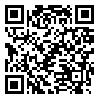Volume 6, Issue 3 (11-2004)
yafte 2004, 6(3): 55-59 |
Back to browse issues page
Download citation:
BibTeX | RIS | EndNote | Medlars | ProCite | Reference Manager | RefWorks
Send citation to:



BibTeX | RIS | EndNote | Medlars | ProCite | Reference Manager | RefWorks
Send citation to:
Tarhani F, Momennasab M, Delfan B, Zendehkar A, Zaman M. A study of oral Taranjabin effects on reducing neonat’s hyprebilirubinemia. yafte 2004; 6 (3) :55-59
URL: http://yafte.lums.ac.ir/article-1-934-en.html
URL: http://yafte.lums.ac.ir/article-1-934-en.html
Abstract: (20912 Views)
Background: Hyperbilirubinemia is a common and usually a benign problem of neonates that affect on 80% immature and 60% term of them. Oral administration of nonabsorbable substances that bind to bilirubin in the intestinal lumen and reduce enteric absorption of bilirubin may reduce peak serum bilirubin. Activated charcoal, agar and cholestramin have been used but further study of this type of therapy is needs. In this study we assess efficacy of oral Taranjabin (mann), one of the traditional treatment in our area, in neonatal hyperbilirubinemia.
Materials and Methods: This clinical trial study was conducted in 86 neonates (41 and 45 newborns respectively in case and control groups). Subjects were selected among full term neonates whose weight were over 2500 gram and non of them suffered from any risk factor such as hemolysis, sepsis etc. case group (41 neonates) received oral suspension 30gr of Taranjabin 1 cc/kg q12hr pluses phototherapy and control group put under phototherapy alone. Blood sample were taken from them before treatment and once every 24 hours. Data were analyzed by SPSS variance test and T-test software.
Results: Results showed that there were no significant between two groups in total bilirubin level in the first and second day after Taranjabin administration and in hospitalization period in both groups (p=0.04%).
Conclusion: The efficacy of phototherapy in decreasing the serum bilirubin in neonatal jaundice cannot be augmented by oral Taranjabin, on the contrary of peoples’ belief.
Type of Study: Original Research |
Received: 2012/12/25 | Accepted: 2021/10/13 | Published: 2004/11/15
Received: 2012/12/25 | Accepted: 2021/10/13 | Published: 2004/11/15
| Rights and permissions | |
 |
This work is licensed under a Creative Commons Attribution-NonCommercial 4.0 International License. |





